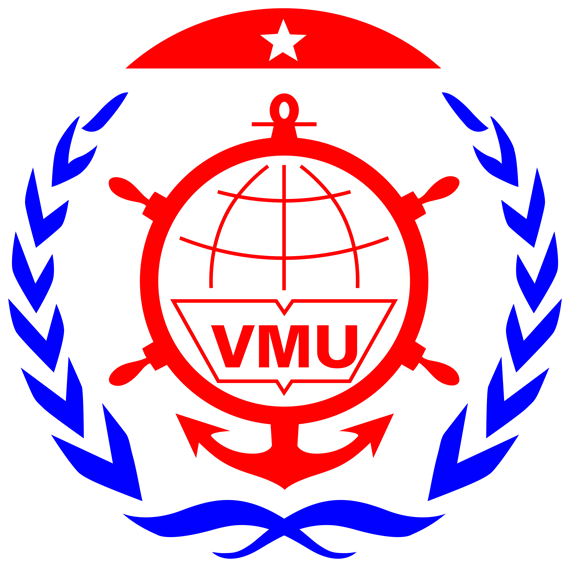1. Introduction
|
Program name: |
Bachelor of Accounting and Financial Management |
|
Degree Awarded: |
Bachelor |
|
Study Mode: |
Full-time |
|
Total credits: |
134 |
|
Language of Instruction: |
Vietnamese |
|
Duration: |
4 years (8 semesters) |
|
Faculty in charge: |
Faculty of Financial Management |
|
Website: |
|
|
Address: |
Room 122, 1st Floor, Building A4, Vietnam Maritime University 484 Lach Tray - Le Chan - Hai Phong |
The Accounting and Financial Management training program at Vietnam Maritime University is developed by the Faculty of Financial Management, incorporating training programs from many prestigious universities both domestically and internationally. The curriculum is regularly updated to align with industry needs and comply with the regulations of the Ministry of Education and Training and Vietnam Maritime University, equipping learners with the necessary knowledge, skills, and attitudes.
The program meets the Vietnamese National Qualifications Framework and international standards, enabling graduates to effectively integrate into the 21st-century workforce. Graduates of the program receive a Bachelor of Accounting and Financial Management. They are well-equipped to manage corporate finance, organize and execute accounting tasks in enterprises and other organizations, and adapt to various working environments. They are dynamic, creative, and capable of competing with human resources in the Asia-Pacific region, contributing to the development of the marine economy as well as national construction, protection, and international integration.
After graduation, students can pursue careers in finance and accounting, specifically in roles such as accountants in various types of enterprises, financial accountants in administrative units, or professionals in auditing firms, securities companies, and insurance companies.
The Bachelor of Accounting and Financial Management program at Vietnam Maritime University provides a comprehensive education that emphasizes both theoretical knowledge and practical skills, ensuring graduates are well-prepared to meet the challenges of the modern technological landscape.
2. Curriculum
The Bachelor of Accounting and Financial Management program is organized into eight semesters as follows:
During the eight semesters, students will study a comprehensive curriculum that combines theory and practice. In Semester I, students will acquire fundamental knowledge and skills through Algebra, which emphasizes problem-solving, and Monetary Finance, a foundational subject for economics majors. The Introduction to Finance and Accounting course provides basic knowledge of the Accounting and Financial Management major. Optional courses include Office Informatics and Basic English 1, which help improve students' foreign language and computer skills.
Semester II expands students' knowledge with subjects such as Probability and Statistics, which help develop data analysis skills. The Macroeconomics course provides a theoretical framework for specialized courses in the economics and business administration fields. The Statistical Principles course helps students understand statistical concepts, research objectives, and the statistical research process. Additionally, the Tax course provides general theoretical knowledge about taxation and the fundamental principles of current tax laws.
Semester III introduces essential subjects such as Accounting Principles, which provides fundamental knowledge about Vietnamese accounting to serve as a foundation for business accounting and management accounting. The Econometrics course quantifies economic relationships by providing basic knowledge on building, estimating, and analyzing regression models while conducting hypothesis tests. The Basic Marketing course enables students to apply knowledge of market research, market segmentation, target market selection, and the development of marketing-mix programs for businesses.
Semester IV explores advanced subjects such as Management, which covers core management concepts, including managerial roles, levels, skills, and functions such as planning, organizing, leading, and controlling. The Stock Market course provides learners with both general and in-depth knowledge of stock markets worldwide and in Vietnam.
In Semester V, students are equipped with research skills through the Research Methods in Accounting and Finance course. The Management Accounting course teaches learners to apply management accounting principles to business decision-making, such as product pricing, selecting optimal solutions, and analyzing relevant information for decision-making.
Semester VI focuses on specialized topics, including the practical application of accounting principles to detailed and general accounting for financial and real estate investments, payments, production costs, product cost calculations, revenue, expenses, and determining business results in the Business Accounting course. The Tax Operations course teaches students how to declare, calculate, and pay taxes related to business activities, including export tax, import tax, special consumption tax, value-added tax, corporate income tax, and personal income tax. The Banking Accounting course provides students with professional knowledge and skills for roles such as payment officers (transaction officers), internal accountants, controllers, and general accountants in commercial banks.
Semester VII emphasizes specialized knowledge in finance and accounting. The Financial Management course covers corporate financial management, including business capital management, cost and income management, and financial relationship management within enterprises. Through course projects, students research financial management practices within specific enterprises, preparing them to become proactive and creative financial managers. The Administrative and Career Accounting course helps students integrate and apply their accumulated knowledge to become accountants or general accountants in administrative and career units.
In the final semester, students consolidate their knowledge through internships at enterprises, where they analyze the financial situation of their assigned unit. They identify the unit's strengths and weaknesses during the research report period and conduct an in-depth assessment of a specific accounting aspect at their internship unit. The graduation project equips students majoring in Financial and Accounting Management with the ability to self-study, systematize theory, and demonstrate the integration and application of knowledge acquired throughout their studies.
